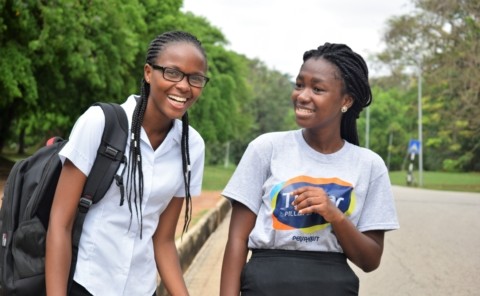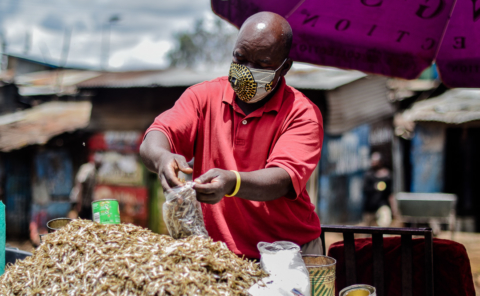regarding banga - roughly banga had 3 sequances of about 12 years at nesdtle, citibank Hong Kong to 2009,head mastercard to 2021 where he set target to include 500 million (world bank 2015 - update); since 2021 climate fund beyind net zero general atlantic
chatgpt has helped me make this start for me its useful to know banga has connected with reeta roy since I have tried to follow her since 2009 - in fact I would say she has been fazle abed's best partner in africa. so i will try to find out more. Charles I hope this does come together from the ny links you can make because if I undestand briefings from Guterres team they really need youthful and tech-good diaspora connections in ways they haven't previously Chatgpt ...".Ajay Banga and Reeta Roy, the CEO of the Mastercard Foundation, have worked closely together to develop and expand the Foundation's initiatives, including the Mastercard Foundation Scholars Program. The program provides scholarships and support to students from low-income backgrounds in Africa, and aims to promote education and leadership development across the continent.
Banga has been an active supporter of the Scholars Program, participating in various events and initiatives related to the program's goals. For example, in 2019, he attended the Scholars Program's annual Symposium in Kigali, Rwanda, where he spoke to scholars about the importance of financial inclusion and the role of technology in promoting economic development.
The Mastercard Foundation Scholars Program has supported students in a number of countries across Africa, including Kenya, Ghana, Uganda, and Nigeria, among others. The program also partners with a number of universities and educational institutions in these countries, providing a range of academic and financial support to scholars.
As for an online space for alumni of the Mastercard Foundation Scholars Program, the Foundation maintains an online platform called "LeadershipConnect," which is designed to connect scholars, alumni, and other members of the Foundation's network. Through this platform, scholars can access resources and opportunities related to leadership development and career advancement. Additionally, the Foundation also maintains a presence on social media platforms like Twitter and LinkedIn, where alumni can connect and engage with each other and the broader community of scholars and supporters."
=============================
some comments from world banj 2015
"The hard work put in to advance financial inclusion is making a great difference, as the new Global Findex numbers demonstrate. Today’s commitments are an important step forward. Many national leaders have already taken bold steps to expand financial access in their own countries. To further that progress, it is important to create the right environment to catalyze private-sector investment and innovation,” said H.M. Queen Máxima of the Netherlands, the UN Secretary-General’s Special Advocate for Inclusive Finance for Development.
“Today, MasterCard is proud to announce our commitment to the World Bank Group’s efforts toward universal financial access. Our target is to reach 500 million people currently considered to be excluded from the financial mainstream. In making this commitment, we recognize that reaching full financial inclusion by 2020 requires the active engagement and commitment of the private sector, working in partnership with governments and international development organizations,”said Ajay Banga, CEO & President of MasterCard. “Together, we can be agents of transformative change who create more inclusive economies and more empowered populations.”
Several leaders of emerging markets companies also made concrete commitments today to reaching the goal.“
Financial access is key to poverty alleviation in Indonesia as currently less than half of country’s population has access to the financial system,” said Budi Gunadi Sadikin, CEO of Bank Mandiri in Indonesia speaking at the panel. “We are supporting the Government’s initiative to distribute conditional cash transfers to millions off amilies and our aspiration is that the program evolves into utilization of branchless banking and savings opportunities for more than 50 million Indonesians by 2020.”
“Since inception, the State Bank of India has played a major role in expanding financial inclusion agenda in the country. During the first three years of its Financial Inclusion Plan (2010-13), SBI covered 20531 villages andopened 20.2 million new accounts. As part of the second Financial Inclusion Plan (2013-16) we reached to 85130 villages and opened 70 million accounts. We see a huge opportunity in our 70 million customers. All these customers can be sold pension and insurance products. Based on transaction history, they can be credit linked and become part of the global financial system,” said Arundhati Bhattacharya, Chairman of the State Bank of India, a panelist at the event.
commitments made by
List of Commitments Made at the World Bank Group Flagship Seminar, April 17, 2015
Visa
also 500 mn.” Charles Scharf, CEO, Visa
Bandhan” Chandra Shekhar Ghosh, CEO, Bandhan
Bank Mandiri” Budi Gunadi Sadikin, CEO of Bank Mandiri
Equity Bank ” James Mwangi, CEO, Equity Bank
Global Banking Alliance for Women
. We support the World Bank Group’s goals to achieve Universal Financial Access by 2020, and commit, with a sub-set of our members, to providing financial access to 1.8 million previously unbanked women customers in Latin America and Africa by 2020.” Inez Murray, CEO, Global Banking Alliance for Women
Ooredoo we are proud to commit to 17 million mobile financial services customers in this time period across diverse markets including Qatar, Kuwait, Oman, Indonesia, Myanmar, Algeria, Maldives and Iraq.” H.E. Sheikh Abdulla Al Thani, Chairman
State Bank of India” Arundhati Bhattacharya, Chairman of the State Bank of India
Telenor Group
“Telenor believes that financial inclusion is a corner stone in the societies within our Asian footprint, and as a mobile operator with good quality networks and well established distribution channels, we are committed to deliver financial services in our markets where between 40 – 90 % are un-banked today. In 2020 Telenor will have more than a quarter billion customers, and our ambition is that at least 50 % of these customers will use their mobile phones for financial services.” Jon Fredrik Baksaas, President and CEO, Telenor Group
World Council of Credit Unions "In 2014 World Council of Credit Unions launched a membership growth campaign to extend credit union services to at least another 50 million people by 2020. As of the end of 2013 there were 208 million members of credit unions and financial cooperatives in the World Council global credit union system. We will extend credit union services to more than 260 million by 2020." Brian Branch, President and Chief Executive Officer, World Council of Credit Unions
World Savings and Retail Banking Institute
“WSBI (the World Savings and Retail Banking Institute) - an international banking association that brings together savings and retail banks from 80 countries representing the interests of approximately 6,200 banks in all continents – remains fully committed to the goal of ‘An Account for Everyone’ that was adopted by its membership in May 2012 when they reaffirmed their strong commitment to financial inclusion in WSBI’s ‘Marrakech Declaration’. As a group, WSBI’s members are the largest providers of accounts for the poor worldwide with an estimated base of 950 million customers at the end of 2014.”

